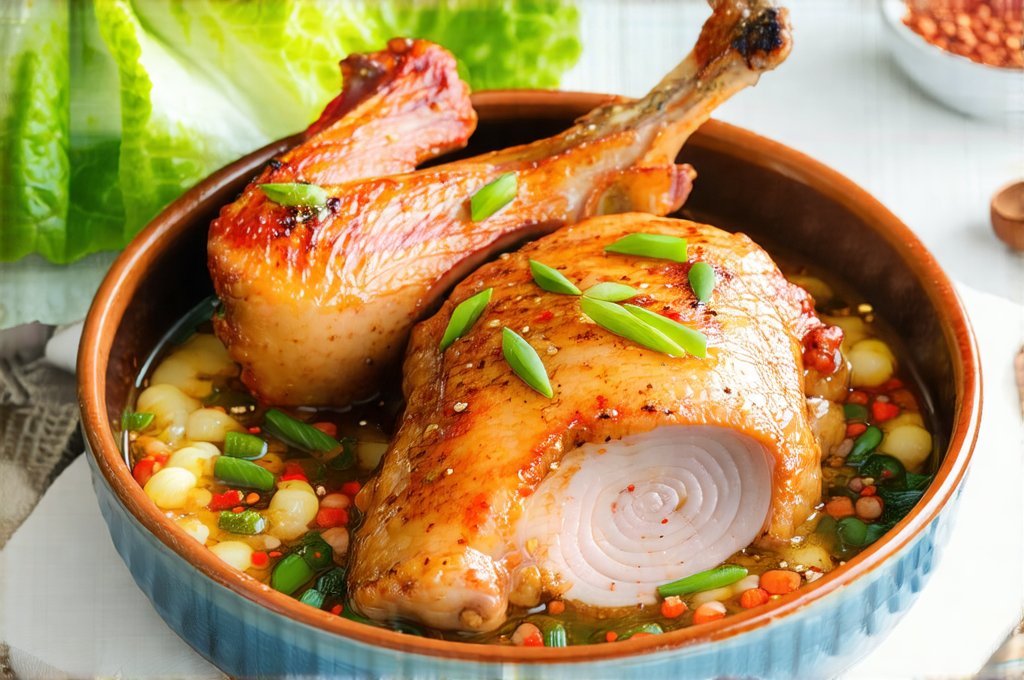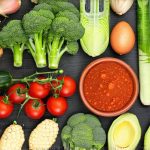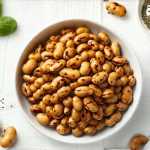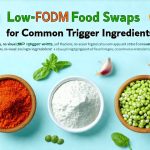Living with Irritable Bowel Syndrome (IBS) can often feel like navigating a minefield when it comes to food. So many seemingly harmless ingredients can trigger painful symptoms – bloating, gas, cramping, diarrhea, constipation, and the sheer anxiety of not knowing what will happen after you eat. This leads many people to severely restrict their diets, eliminating whole categories of foods in an attempt to find relief. But that restriction can be isolating and impact quality of life, making everyday eating a source of stress rather than enjoyment. The good news is it is possible to enjoy delicious, satisfying food even with IBS. It’s about understanding your triggers, focusing on gentle ingredients, and embracing the comfort that food should provide – not just physically, but emotionally too.
Comfort food isn’t necessarily about rich, heavy dishes. It’s more about foods that evoke positive memories, offer a sense of well-being, and are intrinsically enjoyable. For many with IBS, this means reimagining classic comfort recipes using low-FODMAP ingredients, incorporating easily digestible proteins, and prioritizing mindful eating. This article will explore how to recreate your favorite comforting meals while minimizing the risk of triggering IBS symptoms, providing you with a collection of recipes that nourish both body and soul without causing distress. We’ll focus on building flavor profiles that don’t rely on common IBS triggers, offering alternatives for ingredients often problematic for those managing this condition.
Reimagining Classic Comforts: Low-FODMAP Foundations
The foundation of any successful IBS-friendly comfort food plan is understanding the low-FODMAP diet. FODMAPs – Fermentable Oligosaccharides, Disaccharides, Monosaccharides and Polyols – are types of carbohydrates that can be poorly absorbed in the small intestine, leading to fermentation by gut bacteria and subsequent symptoms. This doesn’t mean eliminating all carbs! It means identifying which ones your body struggles with. While a full elimination diet guided by a healthcare professional is ideal for pinpointing specific triggers, we’ll focus on generally low-FODMAP ingredients in these recipes, aiming for maximum comfort and minimal disruption. You can learn more about managing your IBS through dietary changes with resources like breakfast ideas.
Many classic comfort foods rely heavily on high-FODMAP ingredients like garlic, onions, wheat, dairy, apples, pears, honey and certain legumes. Fortunately, there are fantastic alternatives! Garlic and onion can be replaced with garlic-infused oil (using the oil only, as the FODMAPs remain in the actual bulb) or asafoetida spice for a similar savory depth. Gluten is easily substituted with gluten-free flours like rice flour, oat flour (check it’s certified gluten-free), or almond flour. Lactose can be addressed through lactose-free dairy products or plant-based alternatives. The key is experimentation and finding what works best for you. Remember to introduce new ingredients gradually, paying attention to how your body responds. Ensuring adequate hydration is also crucial; consider incorporating hydrating fruit recipes into your diet.
Choosing the right cooking methods also plays a crucial role. Steaming, poaching, baking, and grilling are gentler on the digestive system than frying or deep-frying. Similarly, using smaller portion sizes can help prevent overwhelm for sensitive systems. The goal is not deprivation but mindful modification – enjoying familiar flavors in a way that supports your well-being.
Gentle & Nourishing Recipe Ideas: Building Blocks of Comfort
Let’s move beyond restrictions and towards delicious possibilities. Think creamy soups made with lactose-free milk or coconut cream and pureed vegetables, roasted chicken with rosemary and thyme served alongside sweet potato mash, or gluten-free pasta tossed in a simple pesto made with basil, pine nuts, and olive oil. These are all examples of comfort food that can be adapted to suit IBS needs. Focusing on lean proteins, easily digestible carbohydrates, and healthy fats is key. For evening meals, consider recipes like 7 dinner recipes designed to minimize reflux.
Here are some initial ideas for building comforting meals:
* Soups: Carrot & ginger soup (low-FODMAP), butternut squash soup with coconut milk.
* Main Courses: Baked salmon with roasted vegetables (carrots, zucchini, bell peppers). Chicken stir-fry with rice noodles and tamari.
* Sides: Sweet potato mash, quinoa salad with cucumber and mint.
* Desserts: Rice pudding with lactose-free milk and a sprinkle of cinnamon. Poached pears in a light vanilla syrup (portion control is key with fruit).
It’s important to remember that everyone’s IBS is unique, so what works for one person may not work for another. Keep a food diary to track your symptoms and identify personal triggers. Don’t be afraid to experiment with different ingredients and recipes until you find what suits your body best. How to choose snacks that won’t upset your stomach can also help manage symptoms between meals.
The Art of Soup: Carrot & Ginger Comfort
Soup is arguably the ultimate comfort food, and it’s remarkably adaptable for IBS-friendly diets. This carrot and ginger soup utilizes simple, easily digestible ingredients and delivers a warming, soothing experience.
- Ingredients: 1 tbsp olive oil, 1 kg carrots (peeled and chopped), 1 inch fresh ginger (peeled and grated), 4 cups vegetable broth (low-FODMAP), ½ cup lactose-free milk or coconut cream, salt & pepper to taste.
- Instructions: Heat the olive oil in a large pot over medium heat. Add the carrots and cook for 5 minutes until slightly softened. Add the ginger and cook for another minute. Pour in the vegetable broth and bring to a boil. Reduce heat and simmer for 20-25 minutes, or until the carrots are tender. Carefully transfer the soup to a blender (or use an immersion blender) and blend until smooth. Stir in the lactose-free milk/coconut cream and season with salt and pepper.
- Serving Suggestion: Garnish with fresh chives or parsley. Serve warm with a side of gluten-free crusty bread (if tolerated). This soup is gentle on the digestive system, providing hydration and essential vitamins without triggering IBS symptoms.
Mastering Mashed Potatoes: Sweet Potato Delight
Mashed potatoes are another classic comfort food that can be easily adapted for IBS sufferers. Swapping traditional potatoes for sweet potatoes offers a lower glycemic index and added nutritional benefits.
- Ingredients: 500g sweet potatoes (peeled and cubed), ½ cup lactose-free milk or plant-based alternative, 2 tbsp olive oil or dairy-free butter substitute, salt & pepper to taste, pinch of nutmeg (optional).
- Instructions: Boil the sweet potatoes in salted water until tender, about 15-20 minutes. Drain the sweet potatoes and return them to the pot. Add the lactose-free milk/plant-based alternative, olive oil/butter substitute, salt, pepper, and nutmeg (if using). Mash with a potato masher or electric mixer until smooth and creamy.
- Serving Suggestion: Serve alongside baked chicken or fish and steamed vegetables. Sweet potatoes are easier to digest than regular potatoes for many IBS sufferers and offer a naturally sweet flavor without the need for added sugar.
Baking Bliss: Gluten-Free Apple Crumble (Portion Controlled)
Even dessert can be part of an IBS-friendly comfort food plan! This gluten-free apple crumble uses minimal ingredients and portion control to minimize potential triggers, offering a satisfyingly sweet treat.
- Ingredients (Filling): 2 apples (peeled, cored and sliced – choose low FODMAP varieties like Granny Smith), 1 tbsp lemon juice, ½ tsp cinnamon.
- Ingredients (Crumble): 50g gluten-free oats, 30g almond flour, 30g dairy-free butter substitute, 1 tbsp maple syrup.
- Instructions: Preheat oven to 180°C. Toss the sliced apples with lemon juice and cinnamon in a baking dish. In a separate bowl, combine the gluten-free oats, almond flour, dairy-free butter substitute, and maple syrup. Rub together until it forms a crumble texture. Sprinkle the crumble over the apple filling. Bake for 25-30 minutes, or until golden brown and bubbly.
- Serving Suggestion: Serve warm with a small dollop of lactose-free yogurt or coconut cream (optional). Portion control is key with this dessert as apples are moderate FODMAP – enjoy a small slice to satisfy your sweet tooth without overdoing it. If you’re looking for breakfast ideas, consider breakfast ideas that won’t trigger acid reflux or IBS.
Ultimately, navigating IBS and comfort food is about finding balance and prioritizing what makes you feel good. Don’t be afraid to experiment, listen to your body, and embrace the joy of eating!


















